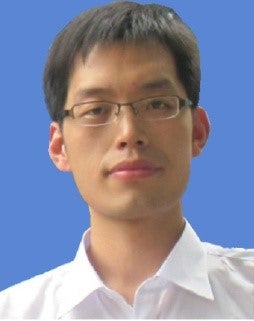
| Topic: | Experimental Investigations of Non-premixed Ethylene/Air Rotating Detonative Combustion in Hollow Combustors |
|---|---|
| Speaker: | Dr Wang Yuhui Associate Professor, Beijing University of Chemical Technology, China |
| Date: | Monday, 22 July 2019 |
| Time: | 2.00pm to 3.00pm |
| Venue: | Seminar Room EA-06-02 (Block EA, Level 6) (map of NUS can be found at http://map.nus.edu.sg/) |
| Host: | Dr Zhang Huangwei |
Abstract
Only a few studies on ethylene-air rotating detonation engines were conducted due to the great difficulty of quick ethylene-air mixing. Hydrogen or oxygen was added into ethylene-air mixtures, or premixed ethylene-air mixtures were used in some previous studies, to obtain rotating detonation waves. Non-premixed rotating detonation waves of high speeds for ethylene and air sources at room temperatures were obtained in the present study, proving ethylene is feasible for air-breathing rotating detonation engines. The hollow combustor channel here had an outer diameter of 100 mm. Fuel and air were injected into the combustor from 150 cylindrical orifices of a diameter 0.8 mm and a circular gap with a throat width of 1 mm, respectively. The detonation speeds were 1256–1653 m/s for the air flow rates 465–689 g/s and equivalence ratios 0.47–1.06. Most of the speeds were above 80% of Chapman-Jouguet values. Both high-speed images and dynamic pressure sensors showed there was one rotating detonation wave in all the operating conditions. For the same schemes using hydrogen and air, results show that the hollow combustor demonstrates a better detonation performance and a higher pressure gain than the annular combustor.
About the Speaker

Dr Wang Yuhui is an associate professor from the College of Mechanical and Electrical Engineering, Beijing University of Chemical Technology in China. He has published more than 20 peer-reviewed papers and hosted 3 projects of the National Natural Science Foundation of China on rotating detonation engines. His research interests are air-breathing rotating detonation engines using hydrogen and hydrocarbon fuels. Especially, he obtained ethylene-air rotating detonation waves at total temperatures of 280-285 K in 2017.

